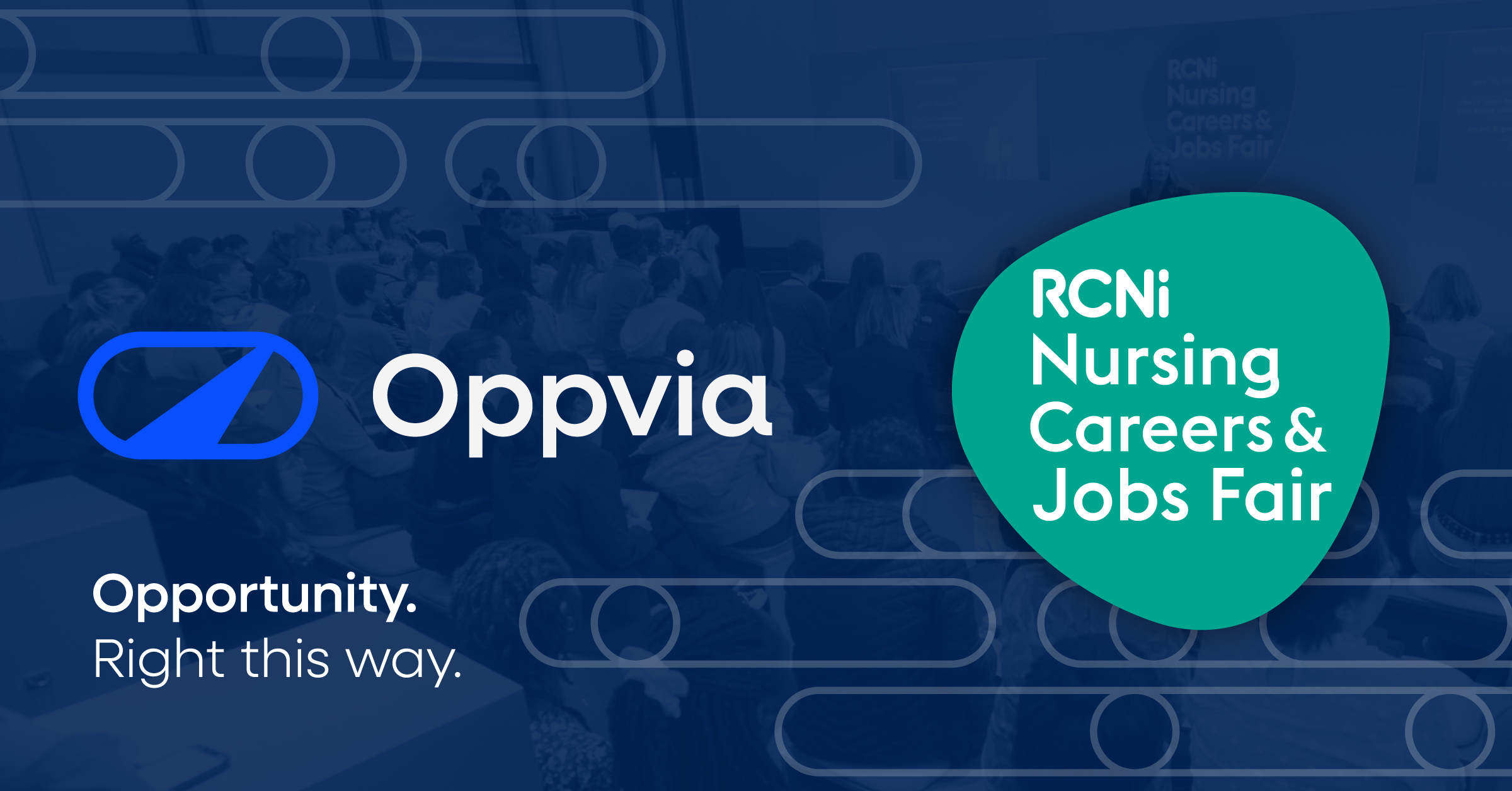Investing in Success: Onboarding Programmes for Global Nurses
Hiring global nurses is an exciting opportunity, but it’s not without challenges. These include language barriers, cultural adjustments, and the intricacies of a new healthcare system. Without the right onboarding, these challenges can stand in the way of what could be a remarkable journey for both nurses and healthcare organisations. We’re putting the spotlight on why onboarding matters. It’s more than just licences; it also ensures global nurses thrive in their new roles. Join us as we tackle the challenges and discover how a solid onboarding process can turn potential obstacles into stepping stones for an enriching and successful career in their new environment.
Why Tailored Onboarding Matters
In the U.K.'s NHS trust facilities, the overall staff leaver rate stands at 12.5%, closely followed by the nurse leaver rate of 11.5%.1 The reasons for their departure? Beyond the common culprits like understaffed facilities and demanding work environments, there’s a crucial factor: the absence of tailored guidance and oversight. This issue amplifies for those still finding their footing in the nursing profession. This is where specified onboarding sessions come into play. These programmes aren’t just about welcoming international nurses. They also provide a smooth transition into the job by offering specialised training, coaching, and a roadmap to understand their new healthcare environment. Through individualised support tailored to each participant’s needs, these programmes improve communication abilities, cultivate cultural competency, and advance knowledge of regional healthcare practices. In addition to accelerating the foreign nurses’ adjustment, this personalised strategy supports their long-term retention in the healthcare facility, professional growth, and satisfaction with their work. Global nurses can benefit significantly from onboarding programmes, which ease their transition into a new hospital setting and foster professional success. Some benefits include:
Smooth Integration
By giving international nurses the knowledge and assistance they need to manage the nuances of a new workplace, such as organisational culture, policies, and procedures, onboarding programmes help them integrate smoothly. This integration process fosters a sense of confidence in their jobs and a sense of belonging.
Enhanced Job Satisfaction
Effective onboarding programmes raise job satisfaction by making them feel valued, supported, and ready to succeed. A positive onboarding process can also boost employees’ motivation, dedication, and involvement with the business.
Retention and Longevity
Investing in onboarding initiatives for global nurses shows a dedication to their welfare and advancement as professionals. Additionally, organisations with a robust onboarding process witness an 82% boost in new hire retention and 70% surge in productivity.2 When foreign nurses experience a top-notch onboarding journey, they’re more likely to embrace their roles and stick around for the long term. This decreases turnover rates and the related expenses of hiring new staff.
Challenges Global Nurses Face
Global nurses tackling a new healthcare system encounter language barriers affecting communication with colleagues and patients. Cultural differences also contribute to disorientation, impacting healthcare methods and workplace norms. Moreover, navigating complex regulations and licensing adds another layer of difficulty. Thus, adapting to the intricacies of a new healthcare system, including paperwork and technology, poses challenges. Access to professional development may be hindered, affecting career growth and clinical abilities. And, the stress of relocation, adapting to a new work environment, and managing personal and professional responsibilities can lead to burnout and decreased well-being. To tackle these obstacles, specialised assistance is needed, such as mentorship, orientation programmes, language and cultural competency training, and access to resources for well-being and professional growth.
Onboarding Global Nurses: Topics and Practices to Explore
Jarrard, Inc.’s nursing survey sheds light on a critical need—onboarding programmes, often rated at a modest 6-7 on a scale of 1-10 by nurses, call for improvement. Simultaneously, only two-thirds or less believe their organisations provide adequate resources for new nurses.3 Recognising these gaps is crucial as the global healthcare landscape undergoes constant transformations, demanding seamless integration of foreign-educated nurses into healthcare teams.
Understanding Their Unique Needs
Foreign-educated nurses, though bringing diverse experiences to healthcare, often struggle with a new work environment. Challenges like unfamiliarity with local healthcare practices, cultural differences, and language barriers are common. The key to effective onboarding for these nurses is recognising and addressing these hurdles head-on to ensure their effective integration into your healthcare organisation.
Language and Communication Training
Good communication is essential to providing high-quality healthcare. To assist foreign-educated nurses in improving their language skills and comprehending the subtleties of medical terminology, onboarding programmes should include language and communication training. It is possible to combine mentorship programmes, language instruction, and courses on cultural awareness to promote supportive work environments and successful communication.
Cultural Integration Workshops
Providing quality care means understanding each patient’s unique needs and perspectives. Cultural integration workshops can help nurses from all backgrounds come together and learn from each other. These interactive sessions could cover topics like:
-
- Building open and respectful communication across cultures
- Recognising how cultural backgrounds shape health perspectives and behaviours
- Following ethical and safety standards important to the local community
- Navigating different healthcare practices and protocols
The goal is to create shared understanding and sensitivity so nurses can feel empowered to provide compassionate, patient-centred care. By learning about different viewpoints in a judgment-free environment, nurses develop valuable skills for connecting with and caring for all patients.
Orientation to Local Healthcare Systems
For global nurses, navigating the complexities of a new healthcare system can be overwhelming. Thus, comprehensive orientation workshops covering local healthcare policies, procedures, and regulatory needs should be a part of onboarding programmes. This covers patient documentation procedures, an introduction to electronic health records, and an awareness of the many responsibilities that healthcare professionals play within the organisation. For nurses with foreign educational backgrounds, a facility tour with a guide and introductions to important individuals can also aid in their adjustment.
Mentorship Programmes
Creating mentorship programmes is an important part of the onboarding process that can make a big difference in the success of nurses with foreign educations. Easing their transition can be achieved by assigning them to knowledgeable coworkers who can advise, counsel, and support them. Mentorship programmes can also aid in social integration, assisting nurses with foreign educations in forming friendships and professional networks within the medical community.
Customised Professional Development Plans
Onboarding programmes should include informing nurses of individualised development plans tailored to each nurse’s strengths and growth opportunities. This personalised approach may involve:
- Regular coaching sessions
- Targeted training workshops
- Access to development resources
It should support each nurse’s professional journey on an individual level. By customising development and resources based on specific needs and learning styles, nurses are set up for success in their patient care.
Supporting Wellbeing
The transition to a new country and job can be challenging. Onboarding programmes should inform nurses about available resources that promote mental, emotional, and physical health:
- Employee assistance programmes
- Counselling and wellness services
- Materials on self-care, stress management, and work-life balance
By connecting nurses early on with support systems for their wellbeing, onboarding programmes empower individuals to prioritise self-care while adjusting to new environments. Ongoing access to mental health services and work-life resources contributes to the long-term wellness of all team members.
Evaluation and Feedback Mechanisms
Feedback and ongoing assessment are critical elements of any effective onboarding programme. Frequent check-ins with internationally-trained nurses and feedback sessions with mentors and nurses can yield important information about how effectively the onboarding procedure works. This enables organisations to handle new issues, make the necessary corrections, and guarantee continued support for their nursing personnel who have received their education abroad.
Onboard Global Nurses with Oppvia
A robust onboarding programme is key to strengthening your nursing teams and advancing patient care. Welcoming skilled, global nurses to your facility is a transformative step, and Oppvia is your dedicated partner in connecting with top-quality nursing professionals worldwide. If you’re seeking assistance in building a solid onboarding process and connecting with exceptional global nursing talent, Oppvia is here for you. Elevate your healthcare workforce and ensure a seamless integration for international nurses. Contact us today so you can start onboarding global nurses.
References
1 “NHS Workforce Statistics - September 2022.” NHS-England, https://digital.nhs.uk/data-and-information/publications/statistical/nhs-workforce-statistics/september-2022. Accessed 26 Apr. 2024.
2 Mazur, Caitlin. “17 Incredible Onboarding Statistics [2023]: HR Trends in Hiring, Training, and Retention.” Zippia, 26 Feb. 2023, https://www.zippia.com/advice/onboarding-statistics/.
3 Beyond Burnout, Part II: What Nurses Want Now.” Jarrard, 3735775.fs1.hubspotusercontent-na1.net/hubfs/3735775/Jarrard%20Website%20Files/Jarrard%20Inc%202023-National%20Nurse%20Survey%202.pdf. Accessed 26 Jan. 2024.


